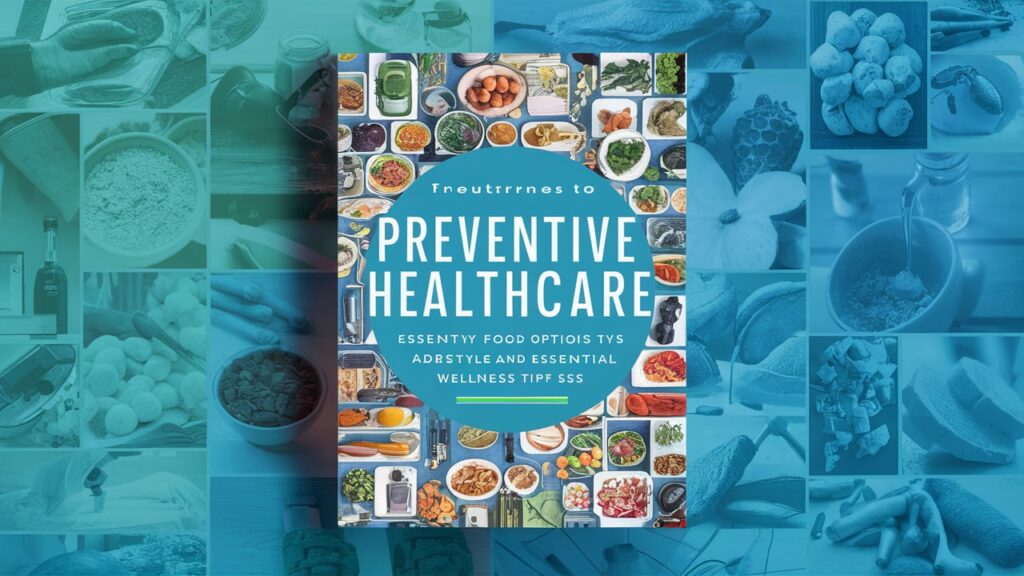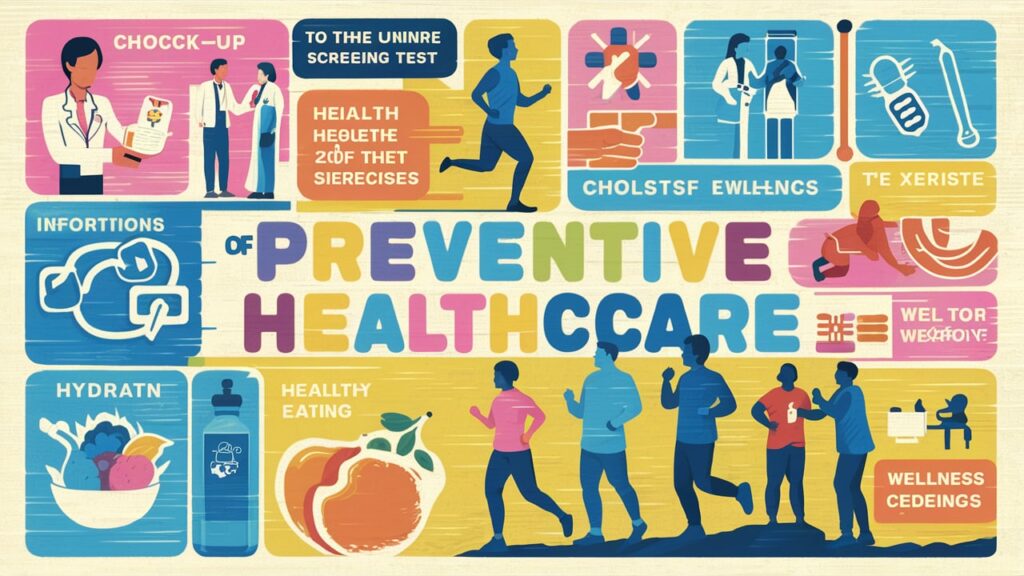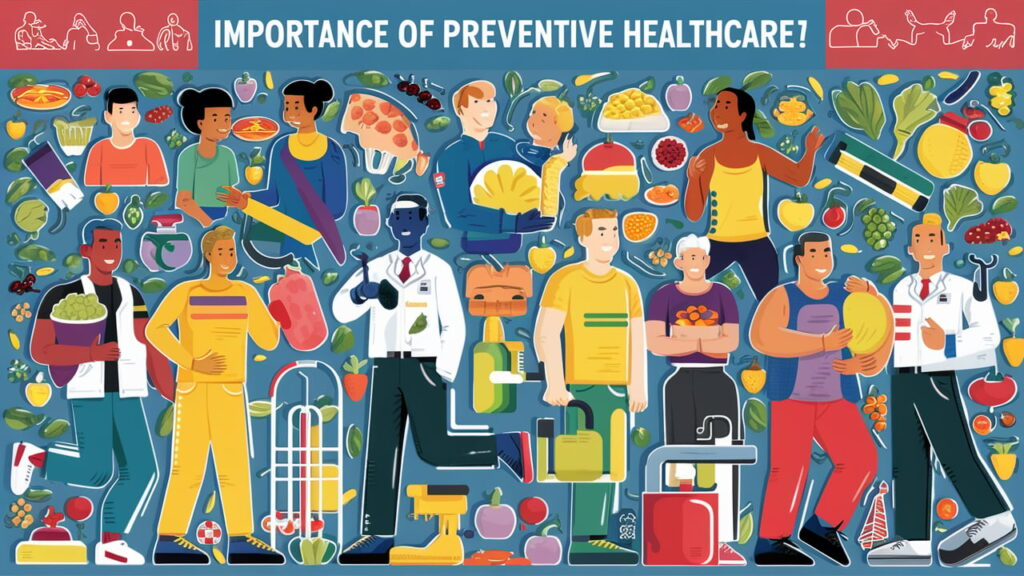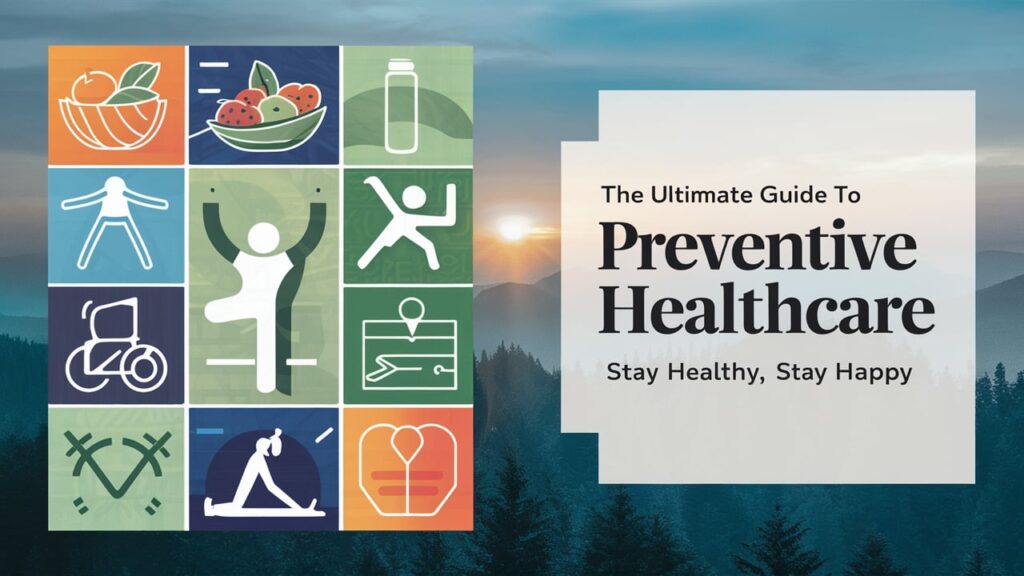In today’s fast-paced world, where health concerns are on the rise, Proactive healthcare has emerged as a crucial strategy for maintaining well-being and longevity. Taking proactive steps to prevent illness before it occurs is not only cost-effective but also enhances the quality of life. This comprehensive guide delves into the importance of preventive healthcare, providing you with actionable insights and strategies to empower your health journey.

Why Anticipatory Healthcare Matters
Preventive healthcare revolves around the concept of early detection and intervention to mitigate health risks. By focusing on prevention rather than treatment, individuals can significantly reduce their likelihood of developing chronic diseases such as diabetes, heart disease, and certain cancers. This proactive approach not only saves lives but also reduces healthcare costs associated with managing advanced-stage illnesses.
Key Components of Preemptive Healthcare
- Regular Health Screenings: Routine screenings for conditions like hypertension, cholesterol levels, and cancers can detect issues in their early stages when treatment is most effective.
- Vaccinations: Immunizations against infectious diseases such as influenza, measles, and hepatitis play a critical role in preventing outbreaks and safeguarding public health.
- Healthy Lifestyle Promotion: Encouraging behaviors like balanced nutrition, regular exercise, stress management, and adequate sleep can significantly enhance overall health and prevent a multitude of diseases.
- Health Education: Empowering individuals with knowledge about risk factors, symptoms of common illnesses, and the importance of early intervention promotes proactive healthcare-seeking behaviors.

Strategies for Implementing Precautionary Healthcare
1. Establishing a Personalized Healthcare Plan
Creating a personalized preventive healthcare plan involves:
- Preventive HealthcareConsulting with Healthcare Professionals: Schedule regular check-ups with your primary care physician or healthcare provider to assess your health status and discuss preventive measures.
- Assessing Risk Factors: Understand your family history, lifestyle habits, and genetic predispositions to tailor preventive strategies accordingly.
2. Embracing Healthy Lifestyle Practices
- Nutrition: Adopting a diet rich in fruits, vegetables, lean proteins, and whole grains while limiting processed foods and sugary beverages can reduce the risk of obesity, diabetes, and cardiovascular diseases.
- Physical Activity: Engaging in regular exercise promotes cardiovascular health, maintains muscle strength, and enhances mental well-being.
- Stress Management: Incorporating relaxation techniques such as yoga, meditation, or deep breathing exercises can alleviate stress and lower the risk of stress-related illnesses.

3. Staying Proactive with Screenings and Vaccinations
- Age-Appropriate Screenings: Follow recommended guidelines for screenings such as mammograms, colonoscopies, Pap smears, and prostate exams based on your age and gender.
- Routine Immunizations: Stay up-to-date with vaccinations to prevent contagious diseases and protect vulnerable populations, especially children, elderly, and immunocompromised individuals.
The Role of Technology in Protective Healthcare
Advancements in technology have revolutionized preventive healthcare:
- Telemedicine: Remote consultations allow individuals to access healthcare professionals and receive guidance on preventive measures from the comfort of their homes.
- Health Apps and Wearable Devices: Monitoring physical activity, sleep patterns, heart rate, and nutrition through mobile apps and wearable devices enables individuals to track their health metrics and make informed decisions.
Overcoming Barriers to forward-thinking Healthcare
Despite its benefits, preventive healthcare faces challenges such as:
- Access to Healthcare Services: Socioeconomic disparities, lack of insurance coverage, and geographical barriers can limit individuals’ access to preventive care services.
- Health Literacy: Misinformation and lack of understanding about preventive healthcare may deter individuals from seeking timely screenings and vaccinations.

Conclusion
In conclusion, prioritizing preventive healthcare empowers individuals to take control of their health and well-being proactively. By integrating regular screenings, vaccinations, healthy lifestyle practices, and leveraging technological advancements, you can significantly reduce the burden of preventable diseases and enhance your quality of life. Embrace preventive healthcare as a lifelong commitment to living healthier, longer, and happier.
Implementing these strategies not only benefits individuals but also contributes to building healthier communities and reducing healthcare costs in the long run. Start your journey towards preventive healthcare today and reap the rewards of a healthier tomorrow.
